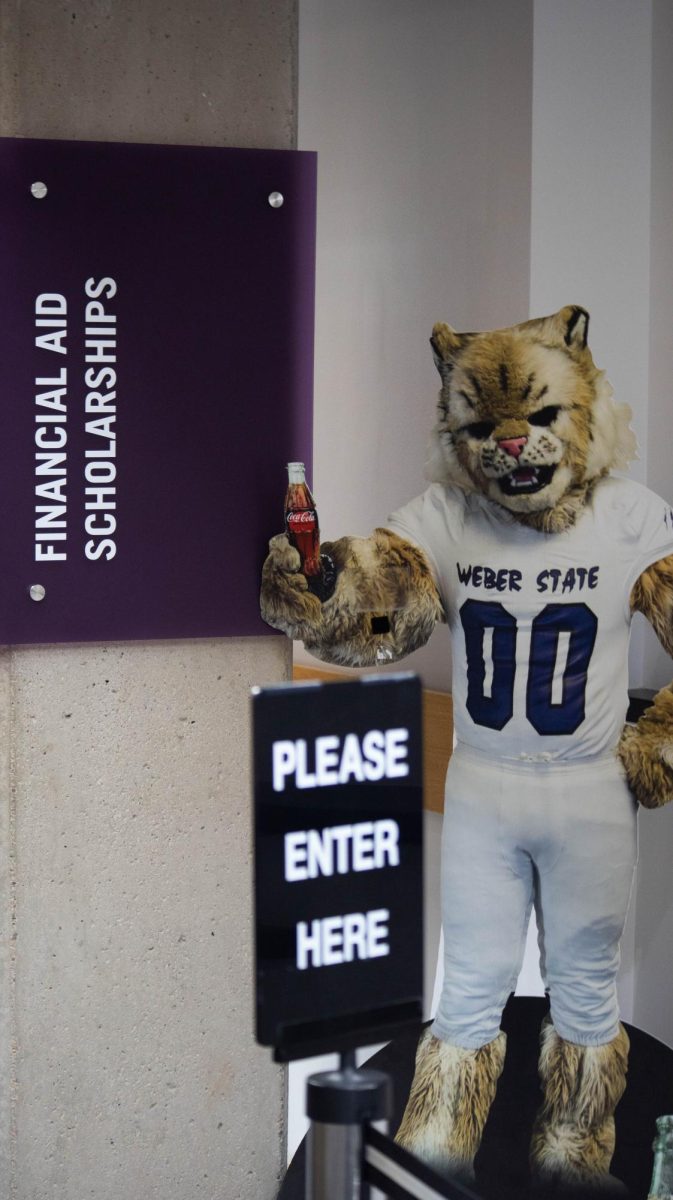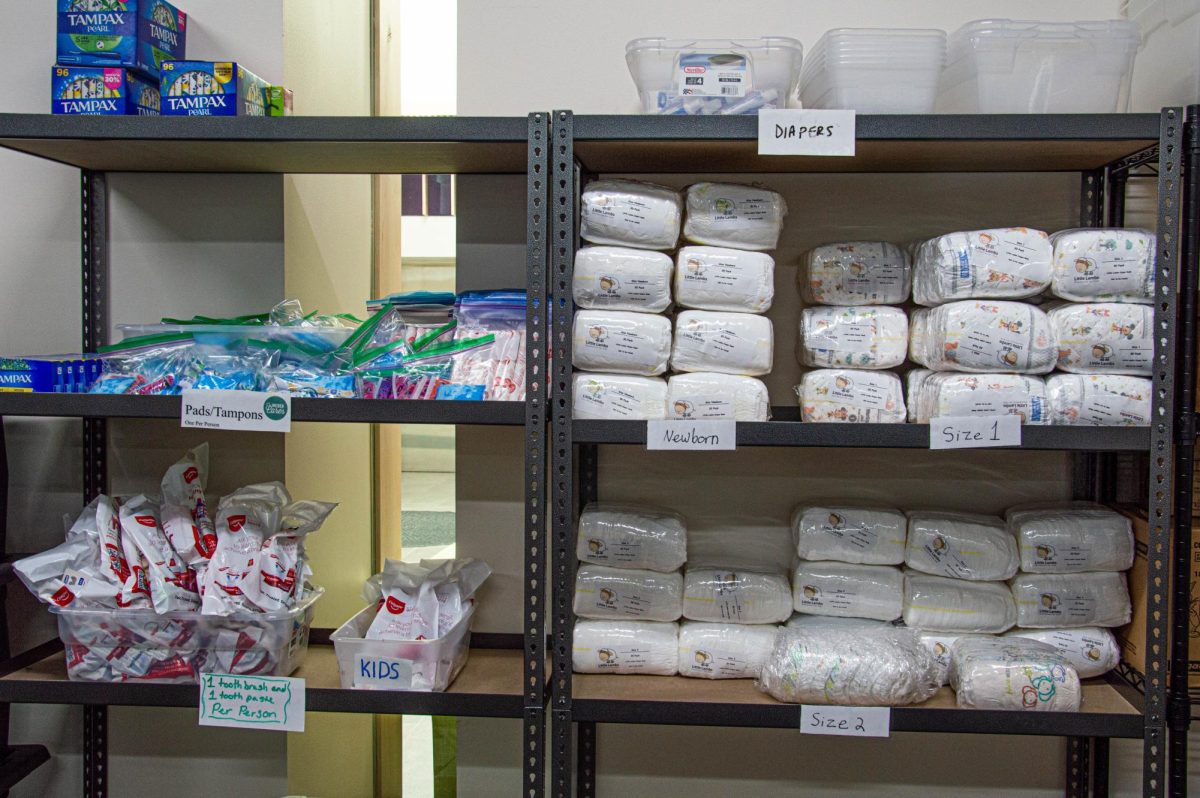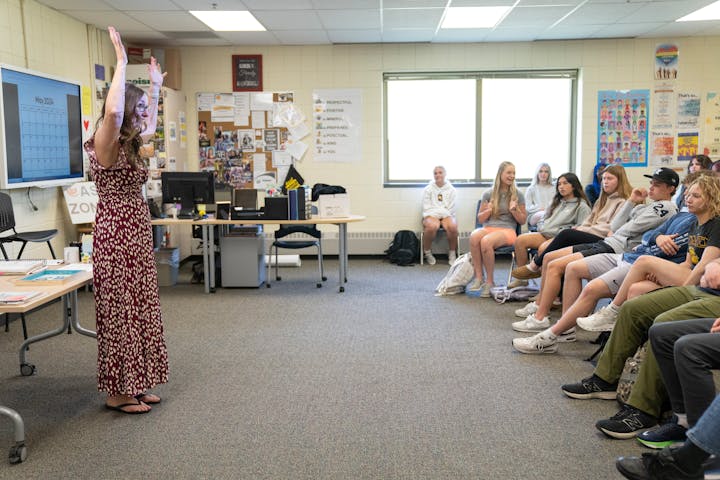
With math reformation taking root across the country, the Weber State University Developmental Math Program is leading the way with new changes to some of their courses this spring.
“We’ve been sort of rebuilding the airplane as we fly it for the last few years,” WSU Developmental Math Program Director Kathryn Van Wagoner said about the Developmental Math Program at Weber State. “And we’ve made a lot of changes to the program.”
Although most of the developmental math courses will remain the same, new changes will focus on introducing new curriculum and policies to specific courses, according to Wagoner.
One major change this semester will be the use of deadlines, especially in the TERM program (Technology Enhanced Redesign of Mathematics), a web-based and individual instruction course, according to the WSU College of Science Developmental Math program.
Van Wagoner said every homework, quiz, and test in the TERM program will now have a deadline.
Any homework completed after deadline is scored at half credit, and whatever test score a student receives by deadline is permanent.
“Basically they’ve got flexibility up to each test. But when a test is due, that’s it,” said Van Wagoner. “Whatever grade you got, that’s the grade you keep.”
Based on faculty-reviewed student requests and the best math instruction practices, these changes were implemented to help improve the TERM program by eliminating student procrastination.
For Van Wagoner, students who allow their work to “snowball” out of control are not successful in developmental math.
She anticipates that these new, hard deadlines will help promote student proficiency by keeping them on track.
“We are making these changes because we’ve found that students who stay on schedule are the most successful,” she stated. “It has just been too easy for students to procrastinate doing their math without deadlines.”
Another change taking place this spring semester is a new version of Math 950 called “REAL” Prealgebra.
“REAL” stands for Real-world Explorations and Active Learning, according to the WSU College of Science Developmental Math Program.
The “REAL” program will meet in a classroom four hours a week where students will work in groups to actively solve real-world problems.
Van Wagoner has high hopes for this new course.
“There’s a lot of paper, pencil and group work here,” said Van Wagoner. “I think students are really going to like this approach to learning math because it has real-life application and meaning.”
If all goes well, the developmental math faculty anticipates expanding the “REAL” course into the 990 and 1010 math courses in the future.
But for now, the class will be open for two sections in the spring along with other developmental math courses, according to Van Wagoner.
Although improvements have been made to the TERM program and a new “REAL” program has been implemented, these new courses are not for everyone.
According to Van Wagoner, one of the main reasons students suffer in the developmental math program is they don’t know all their resources and courses available.
“One of our greatest challenges in helping students succeed is helping them to be aware of their options,” she said. “But we’ve got the tools to help students be successful.”
She recommends students enroll in math classes that best match their learning styles. Course options this semester range from TERM, to flipped, pathway, and REAL Prealgebra classes.
Although several changes are underway this spring, the main goal for developmental math still remains at the heart of the program: student success.
“We really want students to be successful,” stated Van Wagoner. “We’d also really love it if when students were done, they actually learned math and know that math truly has meaning for them.”








Richard P. Evans, Jr. • Jan 14, 2015 at 11:47 am
Developmental Math Changes (Opinion)
Richard P. Evans, Jr.
Non-Traditional Senior
With the utmost humility, I must respectfully disagree. The Developmental Math Program here at Weber State University is the most feared animal in the state. The reputation is so bleak that students are guided to get their math done before you come to Weber by current and former students as well as mentors away from the university. I personally know students who have repeated math classes, more than four times and were contemplating leaving school as failures. This is wrong. Who is the benefactor? I did not appreciate the comment that adding deadlines: “… were implemented to help improve the TERM program by eliminating procrastination.” For one, I am a 57 year old nontraditional student, who returned to school after a 27 year “stint” in service to my country. I had not had formal math in over 35 years and “tested” into Math 990. I then became a fixture in the Davis Campus HUB. I noted that I had logged 230 hours in the HUB during my Math 1010 experience. So, was I a procrastinator or a student in need of a program that wanted to ensure my success? If it weren’t for the caring and dedication of two very special professors, my math experience would have been disastrous. Professors Pam Schilling and Dr. John Thaeler gave more than the HUB time or Office Hour support. Both identified my limitations and guided me towards successful completion of my math experience. Yes, I did ask for help, because I knew how. What about the young freshman or returning nontrad who doesn’t? Honestly, I believe a deeper look should be made to improve the math success rate of our 125 year old institution.
Maybe consideration should be made to put the professors and students back in the classroom without the gimmick of being an alternative to our “progressive” Developmental, computer-based, “OMG”, this is my fourth time, and “flipped” classes were are currently experiencing. For those students that want a computer based work in your jammies class…offer it. For the rest of us who appreciate the years of investment our professors made to hone their craft; give us our classrooms back. Please don’t look for ways to “hold our feet to the fire” because we are lazy but look for ways to make our institution the preferred education destination for the “hungry” students of our Great State. Please don’t take the “human and compassion” away from our professors and please, don’t make a very difficult program an impossible one.